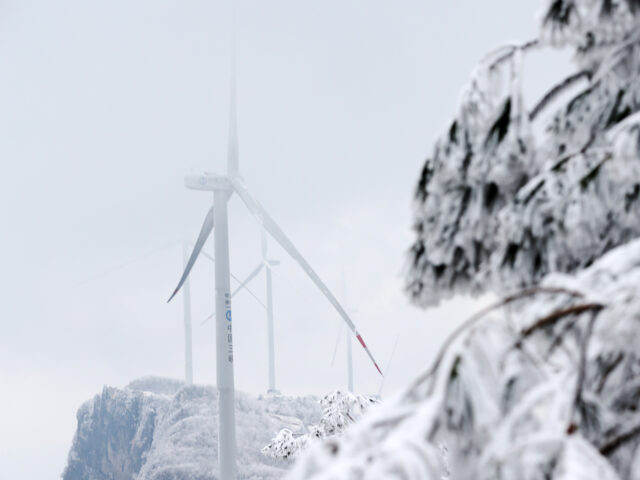The ever-increasing use of green energy is making the world’s power supply more vulnerable to weather, a report on Wednesday has claimed.
A report into the global production and consumption of electricity published by the International Energy Agency has predicted that weather will play an increasingly disruptive role on energy generation across the world as the shift to green energy continues.
It comes as green energy sources in the U.S. and Europe sometimes struggle to keep up with demand, with winter weather in both America and the United Kingdom sometimes greatly disrupting energy security over the past number of years.
According to the IEA’s Electricity Market Report 2023, low-carbon emitting sources of energy are expected to continue to grow across the world over the coming years, but this growth will be somewhat contingent on weather events.
“[L]ow-carbon generation sources – renewables and nuclear together – are expected to meet on average more than 90% of the additional electricity demand over the next three years, unless developments in the global economy and weather events change the trends in electricity demand and fossil-fired generation,” the study predicts.
The organisation in particular has warned that extreme weather events, such as droughts and freezing temperatures, could negatively impact green power generation and — by extension — global energy supply security, with the report listing freezing temperatures in the U.S. and droughts in Europe as being examples of the disruption such occurrences can cause.
“Power systems faced challenges in multiple regions in 2022 due to extreme weather events,” the report reads. “A historic drought in Europe resulted in low hydropower output, putting increased pressure on dispatchable capacities amid record-low nuclear generation in France. In the United States, winter storms caused widespread power outages.”
However, despite the problems such weather events caused for electricity generation, the global body argued that this was evidence that the world needed more renewable energy, not less.
“These [weather events] highlight the need for faster decarbonisation and accelerated deployment of clean energy technologies,” the organisation claims.
How popular this position will be with the general public remains to be seen, with many consumers in Europe, in particular, facing surging energy prices, making it far more expensive to fuel their cars, as well as power and heat their homes.
Many consumers across both Europe and the UK have been left working paycheck to paycheck to keep up with the increased prices, with some even being forced to resort to using food banks in order to get by.
To make matters worse, in many ways Europe has gotten off lightly this winter, with unusually warm weather in the region meaning lower than-expected gas consumption, which has helped the likes of Germany avoid much-feared gas shortages.
There are no guarantees such high temperatures will return next year though, with officials in Brussels already expressing concern that the EU could face a significant shortfall in gas supply next year if drastic action is not taken.

COMMENTS
Please let us know if you're having issues with commenting.